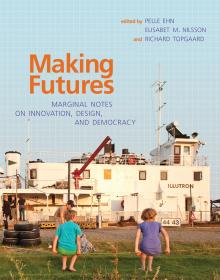Prof. Pelle Ehn from Malmö University gave a Masterclass (45 hours) at the University of Twente about the latest advances in his research group from the 2nd of February to the 17th of April of 2015, as part of the initial activities of the UT DesignLab. This course was based on a book called Making Futures. Frederick assisted Prof. Ehn and delivered two lectures on representing social contradictions.
This “master class” was an introduction to the participatory design tradition. The main focus is on inquiries into contemporary societal and theoretical challenges, especially issues concerning innovation, design and democracy. As a background the genealogy of participatory design will be outlined.
The following themes were introduced:
- Introduction: making futures – innovation, design and democracy
- The genealogy of the participatory design tradition
- “Design things” and “democratic design experiments”
- Social innovation and governance from below
- Opening production and making commons
- Collaborative cultural production
- Publics and democratic space
The course was conducted through lectures and seminars. In addition participants engaged in a “democratic design experiment” around a societal challenge or matter of concern. Their engagement with this concern they brought to a collaborative assembly, a “design thing”, where their “democratic design experiment” was collaboratively explored with the other participants.
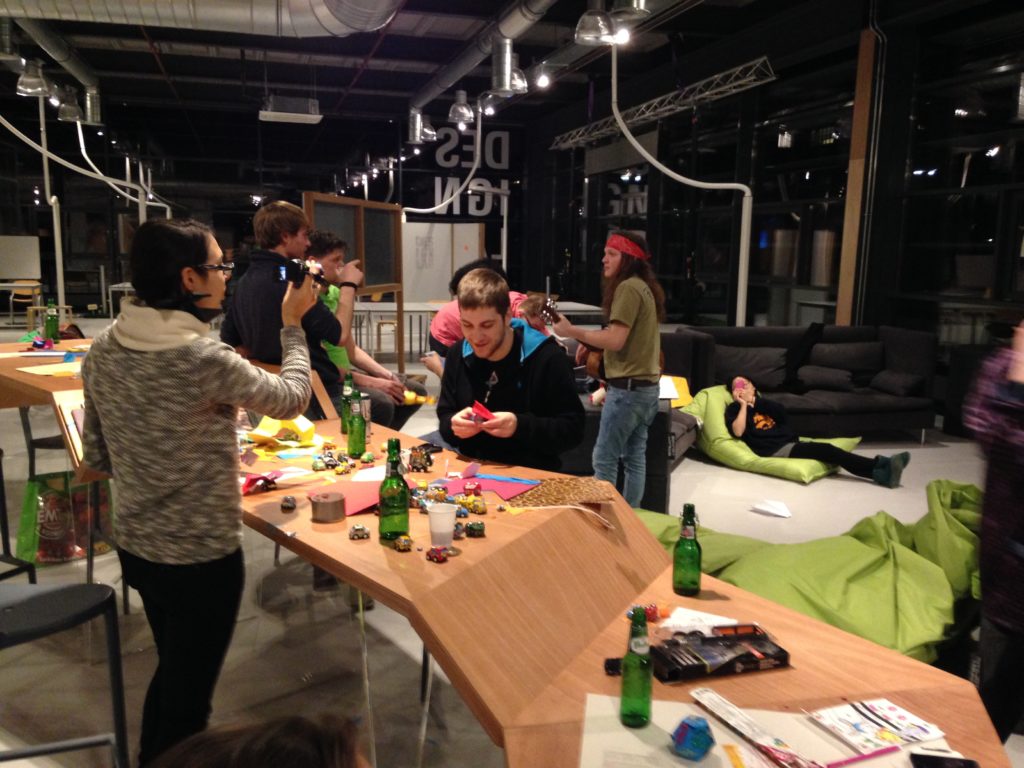
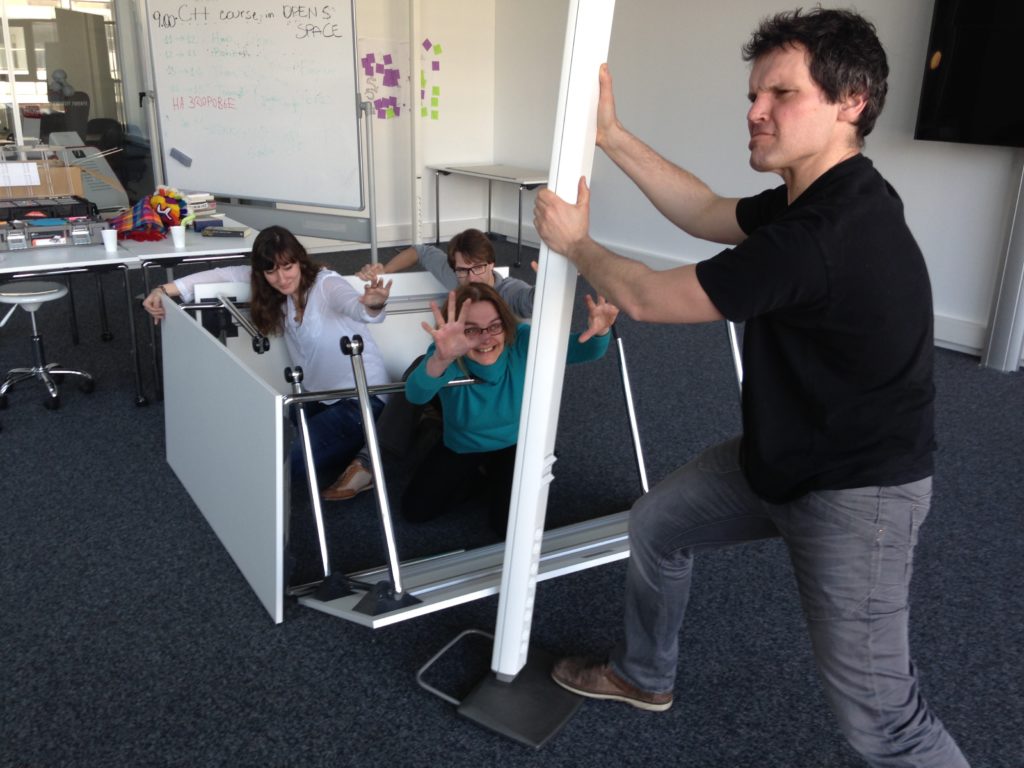
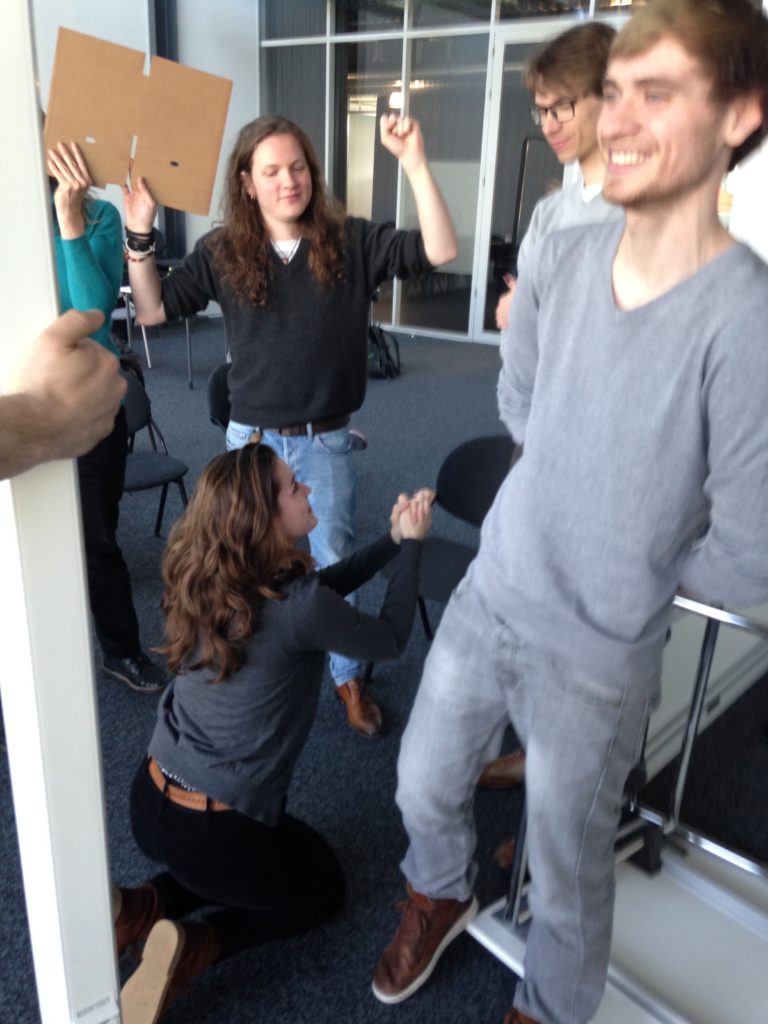

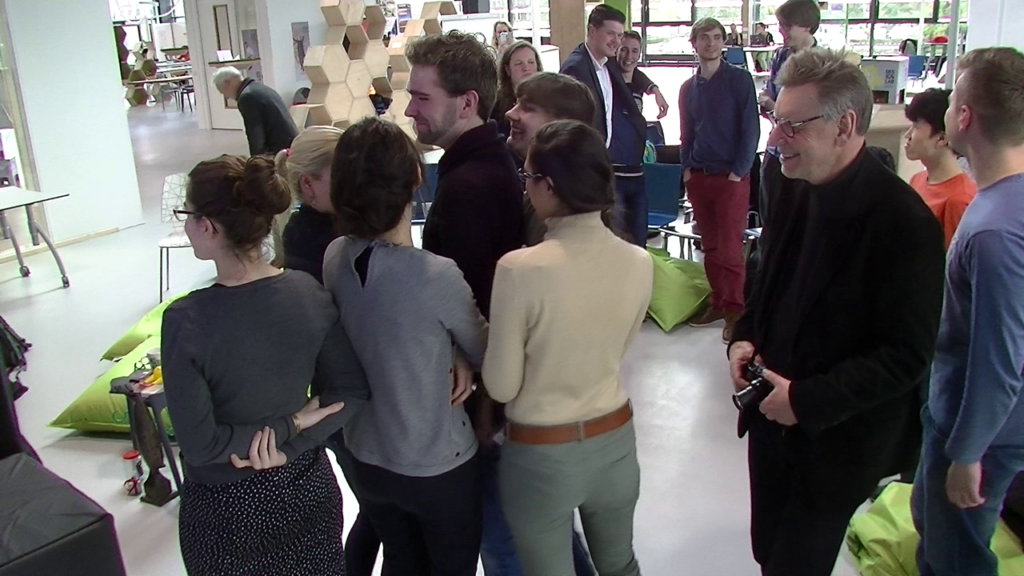
Three case studies emerged from the Masterclass:
- Cultural Clashes Between European and Asian Students: Participants designed an “uncomfortable social event” to explore cultural differences and integration barriers through activities like Forum Theatre and non-human speed-dating.
- Earthquakes Caused by Gas Extraction: A “Wall of Restitution” was created to provide citizens with a platform to express their concerns and experiences, highlighting the social and political challenges of gas extraction-related earthquakes.
- Limited Use of a Makerspace: An occupation and design workshop addressed the underutilization of a university makerspace, aiming to foster a community-driven exploration of how the space could evolve.
These projects demonstrated a shift from problem-solving to controversy-exploring approaches, emphasizing the engagement of diverse actors — both human and non-human — in participatory design processes. The concept of “Design Things” played a central role in enabling collective action, bridging material experimentation with democratic deliberation.
The Masterclass highlighted the importance of provocative design interventions to increase social engagement and underscored the potential of participatory design to address complex societal issues through collaborative exploration.
